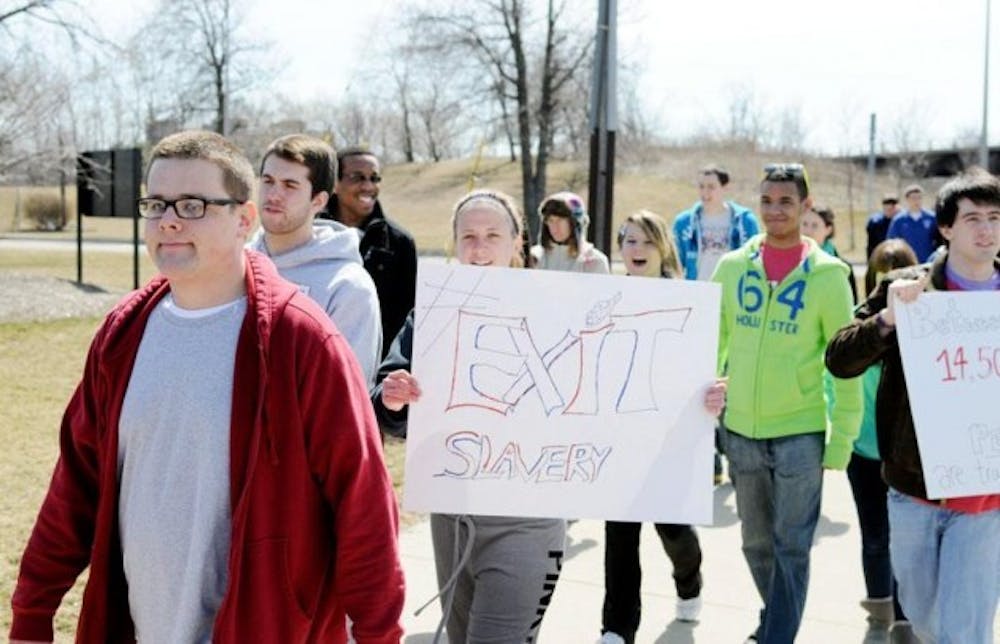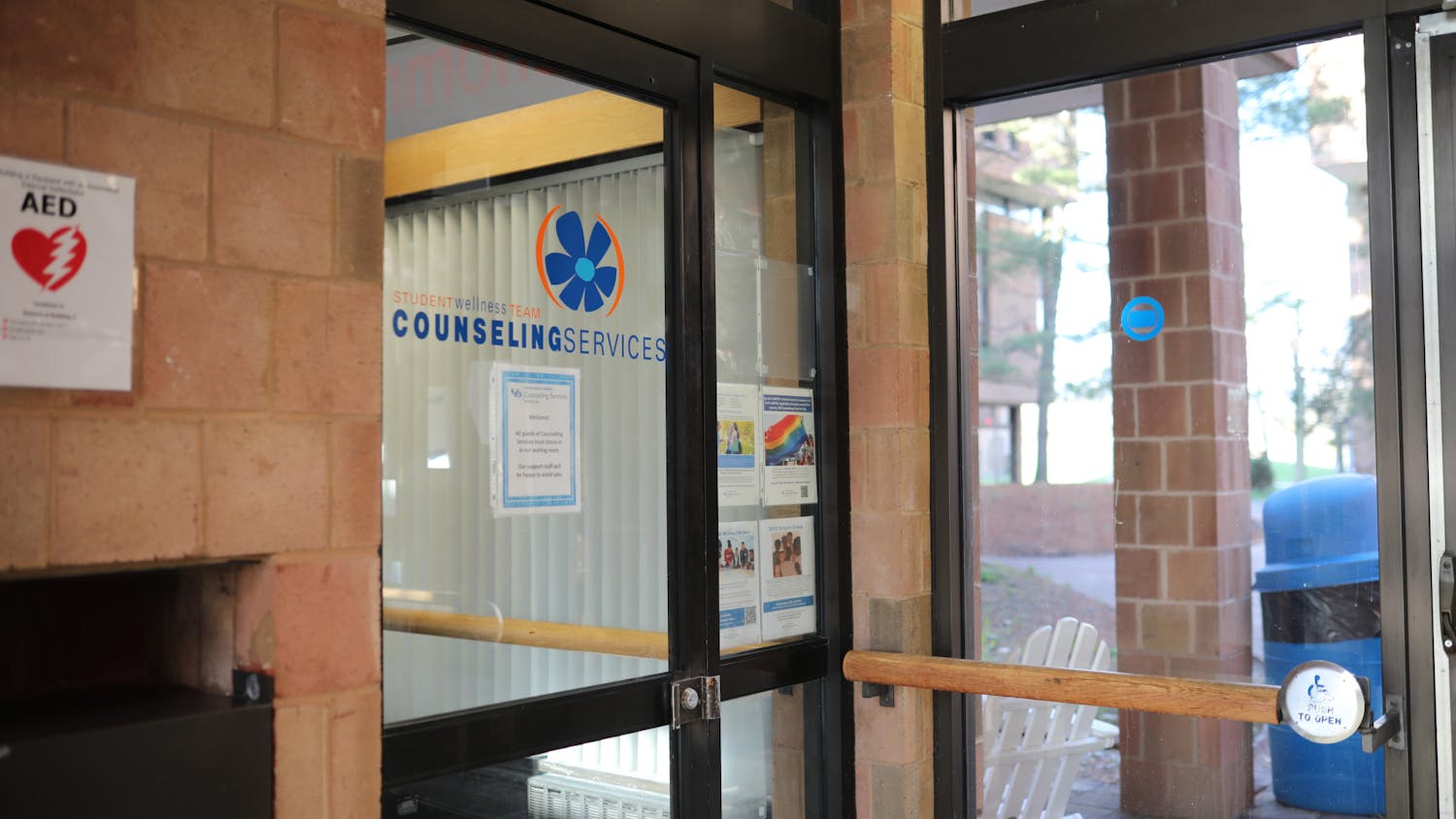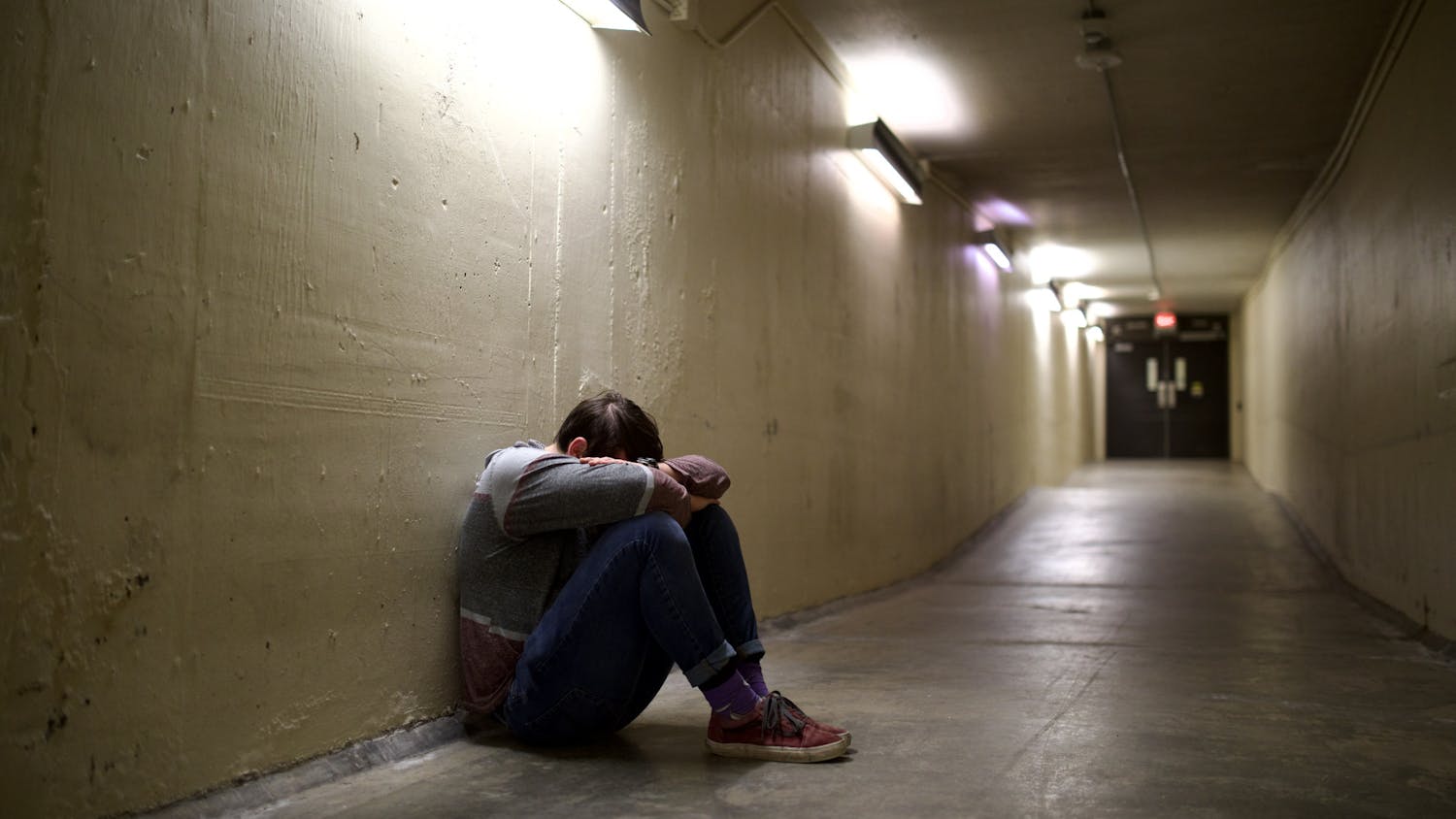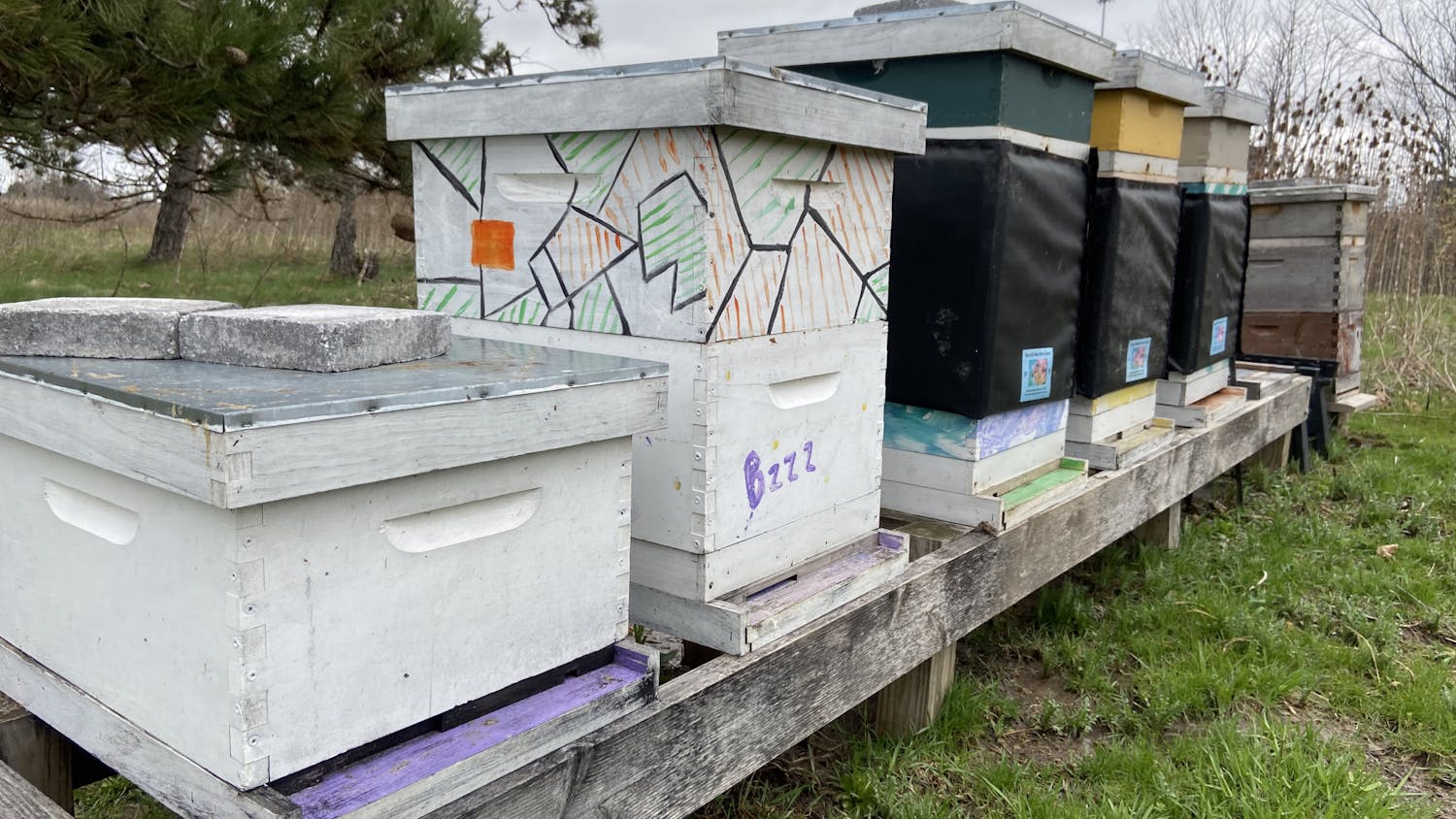Anna Beard was working at a movie theater in North Carolina when a coworker approached her and offered to give her guitar lessons. She was eager to learn and trained with him. She then began a romantic relationship with him and moved in with him.
After a few months, he said he was looking for someone to help him with his art project and thought she would be the perfect model. She accepted and they started taking photos. They were innocent at first but then they became sexual. She no longer wore clothes and the pictures turned into videos.
He was 40. She was 16 and still in high school.
Beard was one of many honored guest speakers who spoke at Freedom Walk Buffalo, held at UB on Saturday. Created by Bloggers Against Social Injustice, a team of bloggers who came together in July 2012, the Freedom Walk was held to raise awareness about human trafficking around the world, especially its presence in Buffalo.
Beard shared her story as an "overcomer" of sexual trafficking. She had been living in a broken home before she met her trafficker, who became the person she could rely on. She just needed to feel loved and wanted, and he made her feel like she was, according to Beard.
Christine Tjahjadi-Lopez, a junior international trade major and the director of the blogging group, came up with the idea after attending a walk by [free-them], another organization against trafficking based out of Ontario. Tjahjadi saw on Blogspot.com that follower bloggers were hesitant to address the topic.
"I figured that I had to find someone to create a buzz with - a buzz that touches someone because I know it is from the sharing of information from one person to another and another that will actually make a change," Tjahjadi said.
Before the guest speakers shared their stories, attendants mingled and learned about the organizations speaking. Made By Survivors and Kingdom Ventures, two different businesses committed to helping the cause of ending human trafficking, sold jewelry made by victims of trafficking.
After a brief introduction by Bloggers Against Social Injustice, a variety of guest speakers took the stage to explain their groups and aspects of human trafficking they have worked to target. Examples include the International Institute of Buffalo and rescue specialist Renan Salgado.
Randy Phipps, public relations representative for [free-them], explained his initial involvement in the mission and how many people are affected by trafficking.
"There are 40,000 people trapped between national borders," Phipps said. "Think about the First Niagara Center - the capacity of that venue is 19,000 - fill that venue twice, and add a couple thousand, and that's the number of people that are trafficked for the purposes of forced labor and sexual exploitation."
Deputy Elizabeth Fildes of the Erie County Sheriff's Department, director of the Human Trafficking Department of Western New York and co-founder of the United Hands of Hope House, also spoke. She works to get the issue of human trafficking out into the community because "everyone needs to know about [it] in order for us to respond to it."
She explained the way traffickers sense vulnerability in young victims and prey on it to pull them in.
"It's just walking up to a person and telling them how beautiful they are, figuring out where the girl is with herself: Does she have high or low self-esteem? That's an easily targeted victim," Fildes said. "What we are finding out about many of these cases is that many girls who don't feel good about themselves have had some sexual assault or incest of some kind happen to them early on in life, and they became vulnerable to this type of trafficking. It's like an Achilles heel - the trafficker is able to see that they don't feel good about themselves ... and he is able to get inside of their head, and that's the scary part."
Because she loved and trusted him, Beard was unaware of what her situation truly represented. She knew nothing about human trafficking to identify herself as a victim.
After moving away for a few years and coming back, she received two important phone calls. The first was from her old manager from the movie theater telling her that her trafficker was asking other employees to help him with an "art project." The second was to notify her of the death of her trafficker.
She went back to retrieve the belongings she had left at his house. She was expecting a box with maybe 20 Polaroid pictures in it. Instead, she found mass-produced pornographic videos and movies. Until that moment, she hadn't realized she was doing porn.
And it wasn't until she read an article in her college sociology class that she figured out she had been trafficked.
"We [were studying] human trafficking and I [was] reading the articles, and I see 'Girl is asked to do art project by older man, tells her she is beautiful and valuable, etc.' and I compared it with my story," Beard said. "That's when I realized I was trafficked. And I started freaking out."
After learning she had been trafficked, she sought help from a program called Mercy Ministries that helped her come to terms with her past, Beard said. A rehabilitation center grounded in Christian values, Mercy Ministries taught her in six months how to "live out of restoration instead of out of brokenness." It is with this renewed strength that she now feels comfortable to tell her story to raise awareness about trafficking at events like Freedom Walk.
After all speakers had finished, everyone gathered to participate in a 3K walk. Holding signs, the crowd often broke into different cheers about freedom that caught the attention of onlookers.
Work to end human trafficking will not be done anytime soon, according to Fildes. But you do not need to have a traumatic story or even have grand plans to work toward ending human trafficking, Beard said.
"You don't need to do something big to bring a significant change," Beard said. "If you make jewelry, go sell some jewelry, donate the funds to get safe houses. We need money and change in policy ... I don't care what religion you are or what faith you believe in - we all believe in love, and we need to be promoting that."
Email: features@ubspectrum.com





